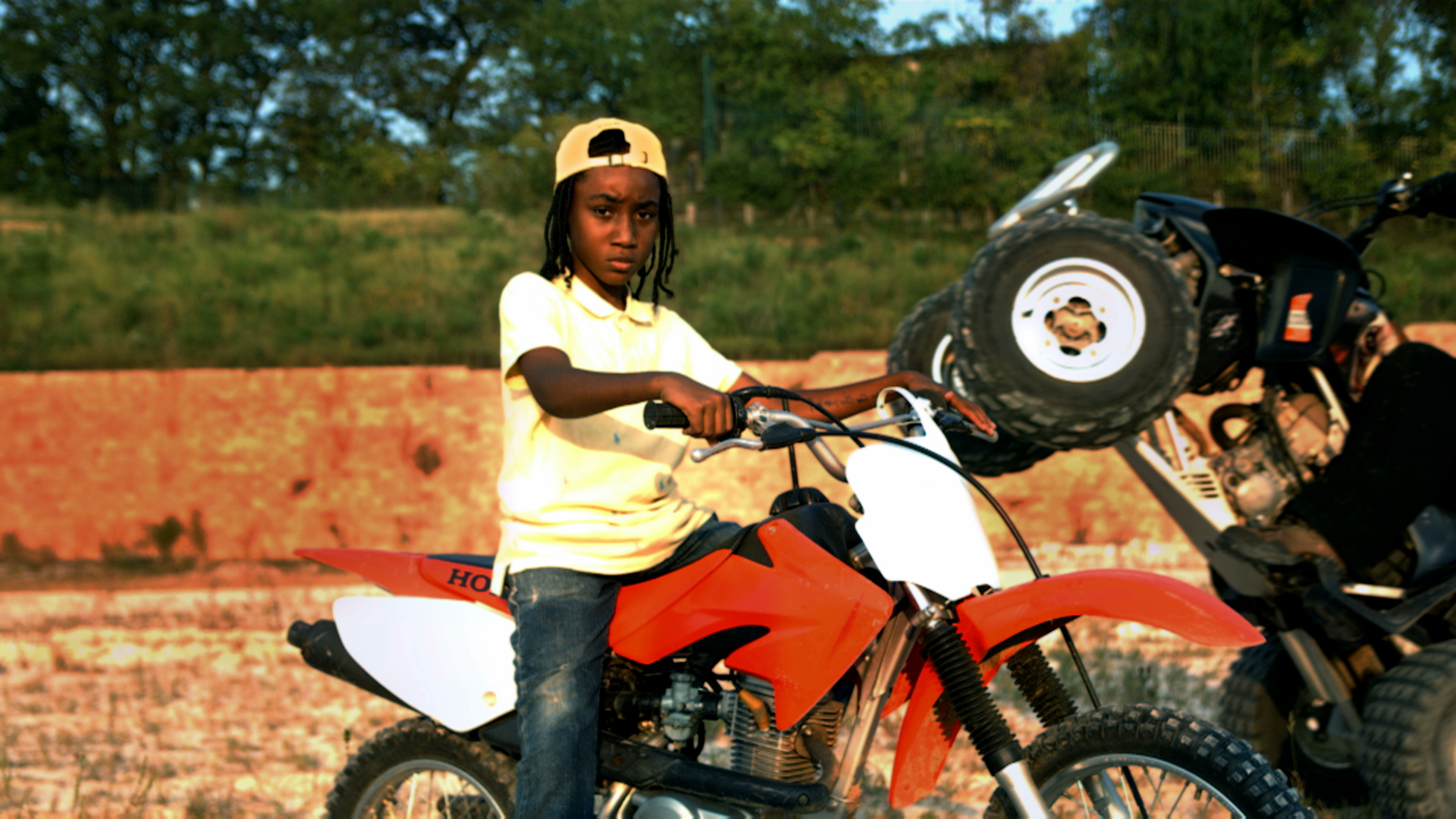12 O’Clock Boys
Runs Fri., Jan. 31–Sun., Feb. 2 at SIFF Film Center. Not rated. 76 minutes.
The lure of a dirt bike is strong, as I remember from boyhood. It’s an important step up from the bicycle in rural areas, a means to teenagerhood. But who would ride those smoke-belching, knobby-tired, two-stroke bikes in downtown Baltimore? The 12 O’Clock Boys are an informal family of black teens—don’t call them a gang—who parade on Sundays through the streets, helmetless and often popping wheelies. Lofty Nathan’s new doc includes TV news reports explaining how the Baltimore police have adopted a no-chase policy toward these unlicensed and often dangerous thrill-seekers. Frequently speeding and cutting across lawns and sidewalks, they’re a public nuisance in a city that has bigger problems on its plate. Yet when Nathan films them in slo-mo, you can see how irresistibly heroic they are to Pug, a 13-year-old boy whom the documentary follows for the next three years.
The obvious danger here is ghetto tourism, which Nathan does not avoid. Most everyone here is poor and black, and subtitles are often necessary to understand their words. Pug’s single-mother Coco was once an exotic dancer; she has five kids, one of whom will die before the movie’s done; and her degree of control over Pug is tenuous at best. His only goal is to join the 12 O’Clock Boys, who are mentored by a middle-class-seeming guy named Steve. From his truck, he keeps tabs on the police helicopter watching his riders; he’s like a benevolent Fagin overseeing his flock.
With his dreadlocks and love for animals, the charismatic Pug wants to be a veterinarian and a professional dirt-bike rider. The reports from school aren’t good, but Nathan evidently lacked access there. He follows Pug and company on various rides, interviews one reasonable-sounding cop (later accused of police brutality), and asks a few questions from behind the camera. His approach, like that of the exuberant bike riders, is hands-off; and he never digs for context—accidents, fatalities, etc.—that would help us separate YouTube hype from public safety. Are these kids any more obnoxious that those Critical Mass cyclists, more dangerous to themselves or others? “Don’t matter if I fall,” says Pug, the implication being that his life doesn’t have much value. There is the terrible sense here that this likable young fellow is right, and no documentary is ever going to change that.
bmiller@seattleweekly.com








